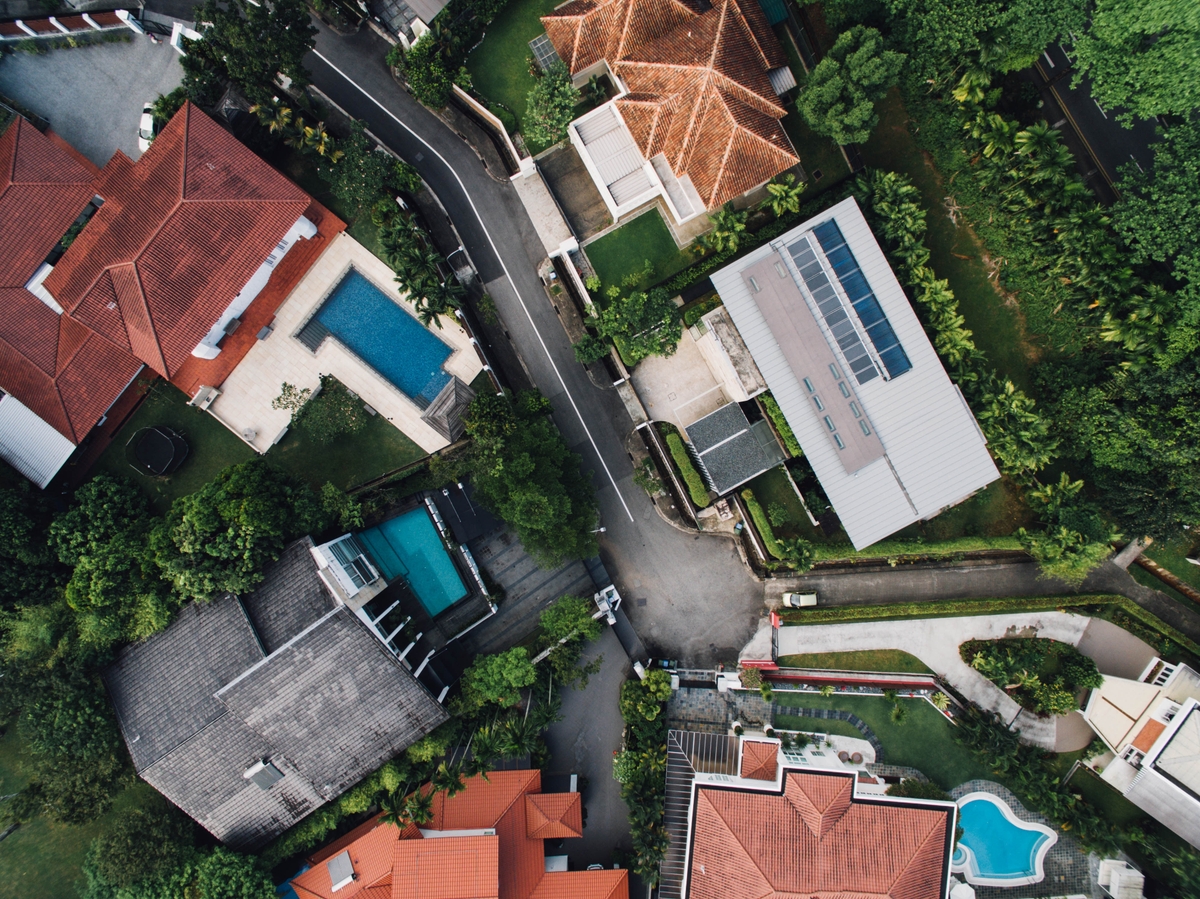Are you moving to Singapore? Whether for an assignment, a new company or more personal reasons, this article serves as a foundation-level guide to help you navigate the price of living in the Southeast Asian city state, giving insights on cost of living, in an era increasingly defined by high cost of living and inflation.
We’ll cover the basics of housing, utilities, transportation, and healthcare. This overview aims to equip you with information to make informed decisions about your budget and lifestyle as you transition to your new home, but we strongly advise you to explore other services, like cost-of-living calculators and realtors, to gain a more thorough understanding before you move and keep those expat relocation costs low.
1. Housing
Renting?
Prices vary depending on location, with central areas like Orchard Road commanding a premium (SGD 3,500 - SGD 5,000+ per month for a one-bedroom apartment) and more family-friendly suburbs offering budget-friendly options (SGD 1,800 - SGD 2,500).
Read more about the procedures for a foreigner to rent a property in Singapore. And some rules and regulations to abide by when renting properties in Singapore.
Buying?
Freehold ownership is available for apartments and condominiums, but expect significant upfront costs compared to renting. Studio apartments start around SGD 450,000 (one-bedroom around SGD 700,000) and a non-Housing Development Board (HDB) family apartment will cost well more than SGD 1,000,000.
Consider property taxes and maintenance fees. Popular online platforms like 99.co offer convenient ways to explore listings and research prices.
Read more about whether you should rent or buy in Singapore here[LWC1] .
Internal link to CR SG web site

2. Utilities
Public Utilities Board (PUB) is the sole provider for electricity and water. You’ll have to register with PUB upon moving to Singapore, providing the necessary documents.
Electricity
Costs can vary based on usage and apartment size, averaging SGD 80 - SGD 150 per month for a one-bedroom apartment.
Water
Water bills are generally lower than electricity, averaging SGD 30 - SGD 50 per month for a one-bedroom apartment.
Internet and Phone
Several providers offer packages ranging from basic broadband to fiber optic. Expect to pay SGD 30 - SGD 80 per month for basic internet, with bundled plans reaching SGD 100+. Mobile phone plans are mostly prepaid, with SIM cards readily available and affordable (basic plans starting around SGD 10 per month).

3. Transportation
Mass Rapid Transit (MRT)
Singapore's efficient and clean metro system covers most key areas. Single fares start at SGD 1.10 and increase based on distance. Ez-Link cards offer convenient reloadable options. Note that the MRT doesn’t offer a yearly season ticket, but instead has a monthly adult card. Owing to its public ownership, MRT costs have not been particularly impacted by the cost-of-living crisis.
Buses
Extensive bus network offering good coverage with affordable fares (starting at SGD 0.80).
Taxis
Readily available for point-to-point travel, metered fares start at SGD 3.00 with additional charges for distance and time. Consider booking apps like Grab or Gojek for convenience and potential discounts.
Vehicles
Owning a car is expensive due to high COE (Certificate of Entitlement) costs, registration fees, and limited parking options. Public transportation is efficient and readily available, making car ownership less necessary. On top of this, vehicle price inflation has hit Singapore in recent years much as it has in the rest of the world.
4. Food and Groceries
Supermarkets
Major chains like FairPrice and Cold Storage offer a wide range of groceries at competitive prices. Expect to spend around SGD 200 - SGD 300 per week for basic groceries for a single person, SGD 350 - SGD 500 for a couple, and SGD 500 - SGD 700 for a family of four. Local wet markets offer cheaper produce and staples.
Hawker Centers and Eating Out
A vibrant part of Singapore's culture, hawker centers offer delicious and affordable meals (SGD 3 - SGD 10). Eating in local restaurants is slightly more expensive, although a meal in a Chinese or Indian restaurant within a typical mall will be no more expensive than 30SGD, generally speaking.
Numbeo provides a breakdown of individual grocery items in Singapore and their costs here.
5. Healthcare
Universal healthcare (MediShield Life) covers public hospitalisation for eligible residents. This generally means Permanent Residents and Singapore citizens. You can find more information on the MediShield Life website here. Although non-PRs cannot gain full coverage, you can still purchase what are called "Integrated Shield Plans" as a foreigner, you can find more information on these plans on the Value Champion website here.
Most expats choose private health insurance for additional coverage and access to private hospitals. Premiums vary based on coverage and age, typically ranging from SGD 5,000 - SGD 20,000 per year for individual plans, and upwards of
Further tips:
- Utilise hawker centres. While grocery prices in Singapore have increased significantly throughout 2021-2024, hawker centres remain cheap and offer delicious local food as well.
- Make good use of public transport. Singapore’s mass transit system is the envy of the world in many respects.
- Much like Hong Kong, Singapore has wet markets which offer significantly better value for money than your typical supermarket.